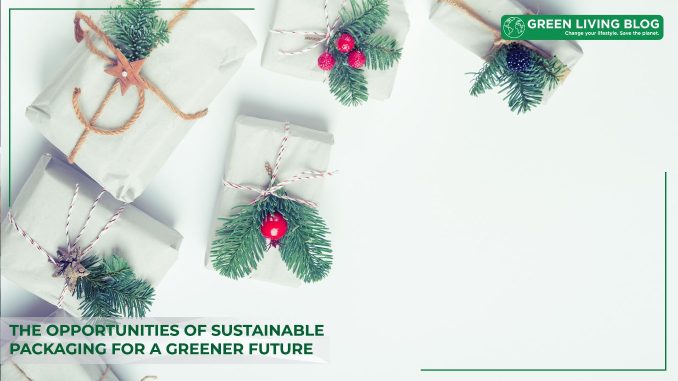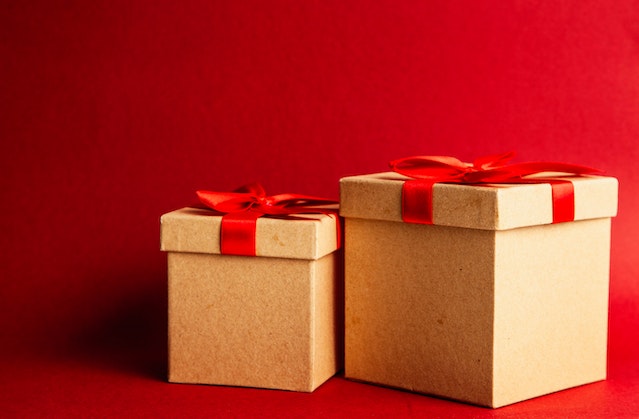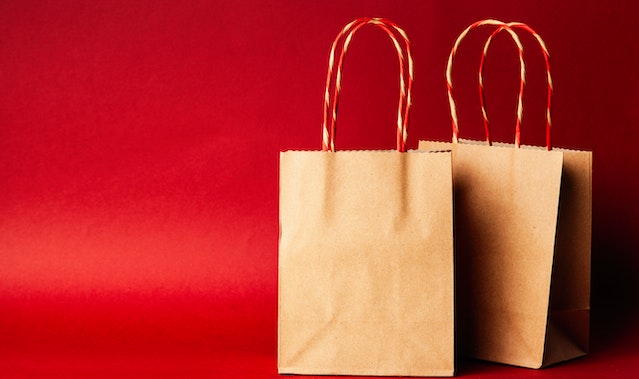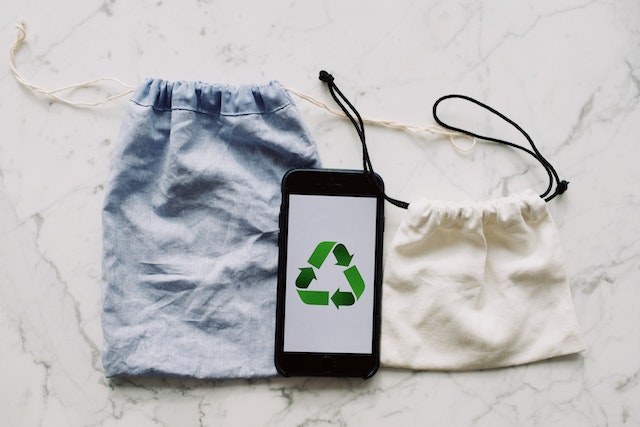
The world is changing and so is the way we package and consume products. Sustainable packaging is no longer a nice-to-have, but a necessity to protect our planet for future generations.
However, making the switch to sustainable packaging can be daunting.
What do you need to know about sustainable packaging? What are the benefits? And, most importantly, how can you make the switch in your own life?
Keep reading to find out!
The Importance of Sustainable Packaging
 With the rise of global consumption and the booming e-commerce industry, unsustainable packaging has been becoming an increasing problem for our environment.
With the rise of global consumption and the booming e-commerce industry, unsustainable packaging has been becoming an increasing problem for our environment.
Single-use plastics are taking over our oceans, shipping materials are filling up landfills, and energy used for packaging is leaving a huge carbon footprint.
The most effective solution to this crisis is sustainable packaging – packaging that uses recyclable materials and eliminates excess waste without compromising product safety or functionality.
By using recycled materials such as paper, cardboard, aluminum, glass, and even bioplastics derived from renewable sources like wood pulp or vegetable starch, we can reduce the amount of plastic waste going into landfills and oceans.
Furthermore, choosing lightweight materials can significantly reduce transportation costs while making it easier to recycle products in the future.
Sustainable packaging is essential for creating a circular economy that does not rely on limited resources like petroleum-based plastics.
Adopting sustainability principles can help companies become better stewards of natural resources – saving money in the process – while at the same time minimizing their environmental impact.
It’s time to think and go green and make sure that our shipping is just as responsible as our shopping!
What Is Sustainable Packaging and Why Is It Important?
 Sustainable packaging is a term used to describe packaging materials that are not only protective and efficient in their use of resources, but also take into consideration the impact that these materials have on the environment.
Sustainable packaging is a term used to describe packaging materials that are not only protective and efficient in their use of resources, but also take into consideration the impact that these materials have on the environment.
This includes making choices about the materials used for packaging, such as paper, cardboard, bamboo, or fabrics made from reclaimed or recycled materials. In addition, ensuring that these materials are recyclable or compostable is an important aspect of sustainable packaging.
From a long-term perspective, sustainability helps to reduce waste by encouraging consumers to reuse packaging where possible. This not only helps to save resources but also keeps items out of landfills and supports environmentally-friendly practices like composting and recycling.
For businesses that produce consumer goods, investing in sustainable packaging can help create public goodwill by showing concern for environmental issues and demonstrating a commitment to responsible production practices.
Ultimately, sustainable packaging has a much lower overall impact than traditional non-recyclable materials, making it an essential part of creating a healthier planet.
As more people become aware of its importance, there will be increased demand for products with sustainable packaging solutions. By embracing these changes now and implementing new solutions where possible, we can make our world better for generations to come.
The Benefits of Sustainable Packaging
 In today’s increasingly eco-conscious world, businesses have started to turn towards sustainable packaging as a way to reduce their environmental impact.
In today’s increasingly eco-conscious world, businesses have started to turn towards sustainable packaging as a way to reduce their environmental impact.
For that unfamiliar, sustainable packaging is designed with the intent to reduce waste production and resource consumption during its lifecycle, from development and manufacture to use and disposal.
There are several ways that this can be achieved, such as
- Using recyclable materials like paper or aluminum
- Renewable feedstocks such as bamboo or wheat straw
- Biodegradable plastics
On top of reducing carbon emissions generated by the production of more traditional packaging materials like plastic and Styrofoam, sustainable packaging also requires fewer resources to produce. This could translate into significant savings in terms of cost due to less material being used in sustainable packaging options.
Furthermore, since people are becoming more conscious of our collective environmental impact, investing in packing made from sustainable materials could give any business a much-needed positive promotional boost.
Ultimately, while there may be some additional effort required when sourcing sustainable packing materials along with potential added cost considerations, making the switch definitely comes with multiple benefits that would ultimately make it worth the investment for businesses looking to go green and help protect the planet we share.
How to Make Your Own Sustainable Packaging
 Making sustainable packaging can be both cost-effective and good for the environment at the same time.
Making sustainable packaging can be both cost-effective and good for the environment at the same time.
All you really need is a few basic supplies, such as coffee filters or fabric scraps. Coffee filters are great for small items like jewelry, while fabric scraps can be used to make larger bags that can hold multiple items. For medium-sized items, paper lunch bags work well.
To make them extra sustainable, opt for brown paper (which is made from recycled materials) and decorate with dye-free markers or shredded recyclables such as scrap paper or newspaper.
Similarly, old tins or jars can be cleaned and reused by lining them with brown paper grocery bags–a great way to store bulkier items like spices. Perhaps best of all, decorating these containers will take no time at all!
Simply find old buttons and ribbon—or, to get more creative, experiment with different types of cloth cut-outs—and attach them to the containers’ lids.
Finally, another option is to use re-sealable plastic bags; just choose ones marked “recyclable” so that they can eventually be sent off for proper disposal when they’ve been fully used up.
With these choices in mind, there’s no excuse not to give sustainable packaging a try!
The Future of Sustainable Packaging
 The future of sustainable packaging is an exciting yet challenging prospect. With plastic waste becoming a major environmental issue, finding ways to reduce our reliance on single-use plastic is key to creating better, greener packaging solutions.
The future of sustainable packaging is an exciting yet challenging prospect. With plastic waste becoming a major environmental issue, finding ways to reduce our reliance on single-use plastic is key to creating better, greener packaging solutions.
Fortunately, technology is developing at a rapid pace so that new materials and methods can be explored. Sustainable options such as paper, bioplastics, seaweed, and other plant-based materials are providing important alternatives to traditional types of packaging.
In addition, improved design processes paired with innovative printing techniques are making it possible to create more efficient and effective packaging solutions.
Moving forward, the challenge will be further refining these new materials and progressions so that they are not only more sustainable but also versatile enough for a range of applications and price points.
With concerted efforts from governments, industries, and consumers alike we could see significant changes in the way we package goods in the years ahead.
Ultimately, the aim must be to find truly sustainable options that can withstand the test of time – both from a durability standpoint and an environmental one!
By focusing on innovation while taking into account sustainability issues we can create packaging entirely fit for purpose while significantly reducing our overall plastic imprint. The possibilities are truly exciting!
Conclusion
In conclusion, sustainable packaging is important because it helps reduce pollution and waste, while also being cost-effective. There are many ways to make your own sustainable packaging, but the most important thing is to be creative and resourceful.
The future of sustainable packaging looks bright, as more and more companies are beginning to adopt these practices. What are you doing to help make a difference?
![]()
Author Profile

- Eco Warrior by day, Eco Blogger by night trying to get the eco balance right.
Latest entries
 EnvironmentJuly 14, 20257 Smart and Sustainable Home Upgrades for 2025
EnvironmentJuly 14, 20257 Smart and Sustainable Home Upgrades for 2025 EnvironmentJuly 9, 2025Does Double Glazing Help Increase Your EPC Rating?
EnvironmentJuly 9, 2025Does Double Glazing Help Increase Your EPC Rating? Green LivingJune 30, 2025Herbal Tea for Insomnia: Your Guide to Natural, Sustainable Sleep Solutions
Green LivingJune 30, 2025Herbal Tea for Insomnia: Your Guide to Natural, Sustainable Sleep Solutions EnvironmentJune 24, 2025What are the most energy-efficient Home Upgrades in 2025?
EnvironmentJune 24, 2025What are the most energy-efficient Home Upgrades in 2025?





Leave a Reply
You must be logged in to post a comment.